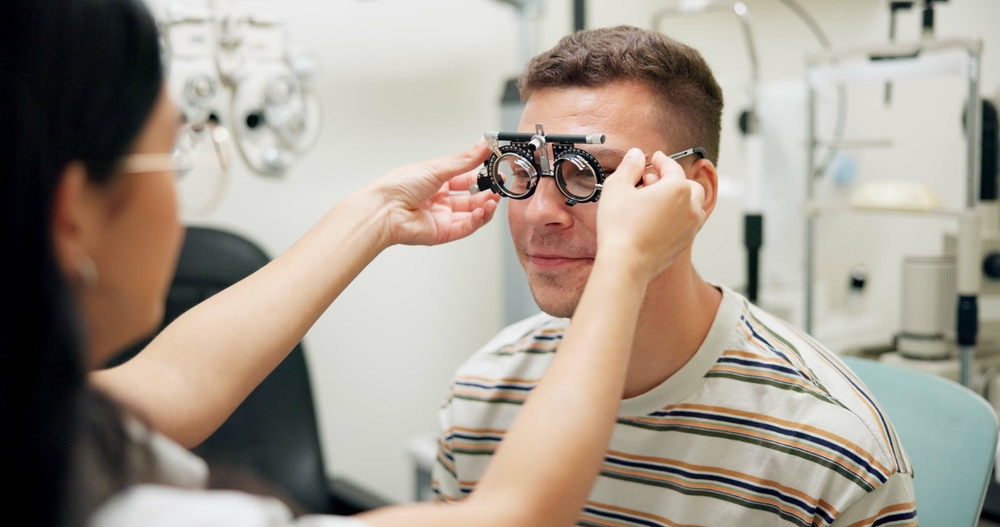Why Regular Eye Exams Are Essential for Maintaining Eye Health
Blog:Why Regular Eye Exams Are Essential for Maintaining Eye Health

Why Regular Eye Exams Are Essential for Maintaining Eye Health
Your eyes are one of your most precious assets, allowing you to navigate the world and experience life in vivid detail. However, maintaining optimal eye health requires diligence and a proactive approach. Regular eye exams are a crucial component of this process, as they enable healthcare professionals to identify potential issues and take preventive measures to safeguard your vision.
What is a Comprehensive Eye Exam?
A comprehensive eye exam is a thorough evaluation of the eyes and visual system, designed to assess overall eye health and detect any potential vision problems. Unlike a basic vision screening, which only tests for how well a person can see at a distance, a comprehensive exam includes a variety of tests and procedures to evaluate many aspects of vision. These exams typically assess factors such as visual acuity, depth perception, eye muscle movement, peripheral vision, and color vision, providing a complete picture of eye health.
Early Detection and Treatment of Eye Conditions
Many serious eye conditions, such as glaucoma, macular degeneration, and diabetic retinopathy, often develop silently, showing no obvious symptoms in their early stages. This makes regular eye exams critical for early detection. By catching these conditions before symptoms arise, your optometrist can initiate treatment early, which significantly improves the chances of preserving your vision and preventing long-term damage. Early intervention is particularly important for conditions like glaucoma, where untreated pressure buildup in the eye can lead to irreversible vision loss.
Monitoring Existing Eye Conditions
If you’ve been diagnosed with an eye condition, such as cataracts, dry eye, or age-related macular degeneration, regular follow-up exams are essential to managing the disease. Consistent monitoring allows your eye doctor to track the progression of your condition and adjust treatment plans as needed. This may involve updating your prescription, modifying medications, or recommending additional therapies to maintain comfort and slow down the progression of the disease, ultimately protecting your vision over time.
Identifying Refractive Errors
Refractive errors, including nearsightedness (myopia), farsightedness (hyperopia), and astigmatism, can interfere with your ability to see clearly at different distances. Regular eye exams play an essential role in identifying these errors and ensuring you have the correct prescription for glasses or contact lenses. If left uncorrected, refractive errors can cause headaches, eye strain, and difficulty performing everyday tasks, but a simple adjustment in your prescription can significantly improve your visual clarity and overall quality of life.
Maintaining Overall Eye Health
Eye exams do more than just test your vision—they can also reveal underlying health conditions that may be impacting your eyes. Conditions such as diabetes, high blood pressure, or autoimmune diseases can have ocular manifestations that your eye doctor may detect during a routine exam. For example, diabetic retinopathy can result from uncontrolled blood sugar, while high blood pressure can cause damage to the blood vessels in the retina. By identifying these systemic conditions, your eye care provider can recommend appropriate medical intervention, helping you maintain both your eye health and general well-being.
Book Your Comprehensive Eye Exam with Texas State Optical Spring Today
Your eyes are a precious asset, and maintaining their health should be a top priority. Regular comprehensive eye exams are the foundation of this effort, providing healthcare professionals with the opportunity to identify potential issues, monitor existing conditions, and implement preventive measures to preserve your vision.
Contact Texas State Optical Spring to schedule your comprehensive eye exam and take the first step towards optimal eye health. Visit our office in Spring, Texas, or call (281) 288-7026 to book an appointment today.


